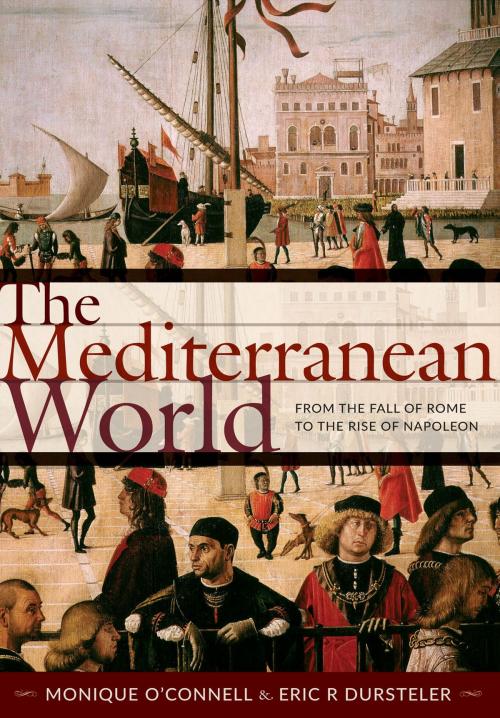The Mediterranean World
From the Fall of Rome to the Rise of Napoleon
Nonfiction, History, Medieval, European General| Author: | Monique O'Connell, Eric R Dursteler | ISBN: | 9781421419022 |
| Publisher: | Johns Hopkins University Press | Publication: | May 23, 2016 |
| Imprint: | Language: | English |
| Author: | Monique O'Connell, Eric R Dursteler |
| ISBN: | 9781421419022 |
| Publisher: | Johns Hopkins University Press |
| Publication: | May 23, 2016 |
| Imprint: | |
| Language: | English |
Located at the intersection of Asia, Africa, and Europe, the Mediterranean has connected societies for millennia, creating a shared space of intense economic, cultural, and political interaction. Greek temples in Sicily, Roman ruins in North Africa, and Ottoman fortifications in Greece serve as reminders that the Mediterranean has no fixed national boundaries or stable ethnic and religious identities.
In The Mediterranean World, Monique O’Connell and Eric R Dursteler examine the history of this contested region from the medieval to the early modern era, beginning with the fall of Rome around 500 CE and closing with Napoleon’s attempted conquest of Egypt in 1798. Arguing convincingly that the Mediterranean should be studied as a singular unit, the authors explore the centuries when no lone power dominated the Mediterranean Sea and invaders brought their own unique languages and cultures to the region.
Structured around four interlocking themes—mobility, state development, commerce, and frontiers—this beautifully illustrated book brings new dimensions to the concepts of Mediterranean nationality and identity.
Located at the intersection of Asia, Africa, and Europe, the Mediterranean has connected societies for millennia, creating a shared space of intense economic, cultural, and political interaction. Greek temples in Sicily, Roman ruins in North Africa, and Ottoman fortifications in Greece serve as reminders that the Mediterranean has no fixed national boundaries or stable ethnic and religious identities.
In The Mediterranean World, Monique O’Connell and Eric R Dursteler examine the history of this contested region from the medieval to the early modern era, beginning with the fall of Rome around 500 CE and closing with Napoleon’s attempted conquest of Egypt in 1798. Arguing convincingly that the Mediterranean should be studied as a singular unit, the authors explore the centuries when no lone power dominated the Mediterranean Sea and invaders brought their own unique languages and cultures to the region.
Structured around four interlocking themes—mobility, state development, commerce, and frontiers—this beautifully illustrated book brings new dimensions to the concepts of Mediterranean nationality and identity.















